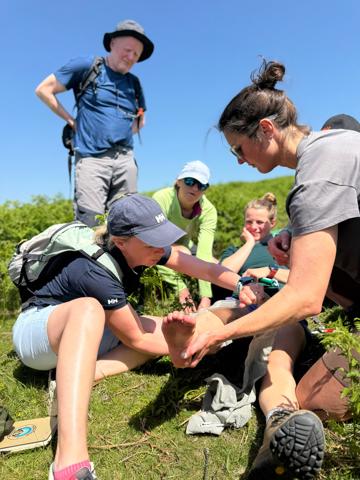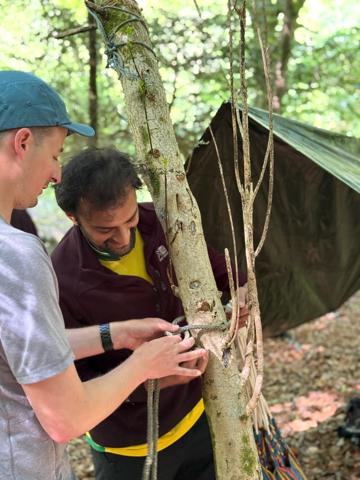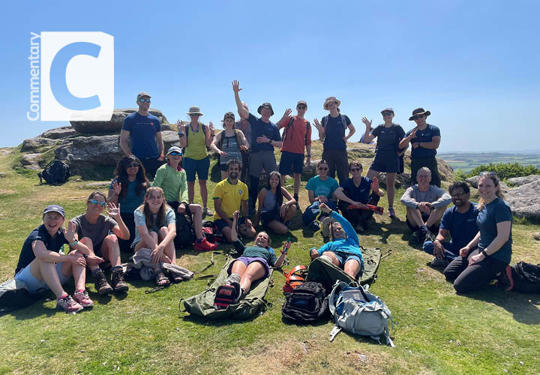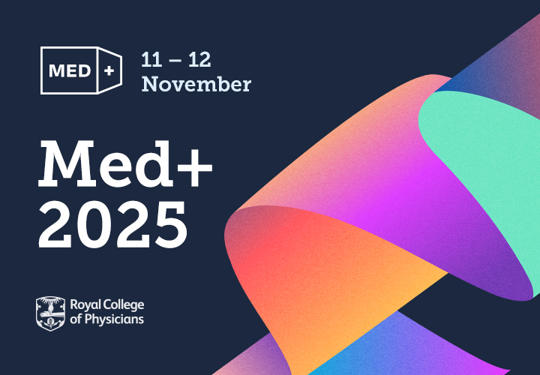Learn more about tropical medicine and imported fevers for the medical take in a novel course, run by Dr Austin Hunt, delivered from the temperate Atlantic rainforests of Dartmoor and Cornwall.
I work as a consultant physician in University Hospital Plymouth – one of the largest hospitals in the south-west of England. We provide care in all major specialties (including cardiothoracic, renal / bone marrow transplant services, neurosurgery, major trauma etc) and we are the clinical home of Peninsula Medical School. It had always seemed odd to me that we had no clinical infectious disease service to cater for the needs of our patients, resident doctors and students.
The hospital is located on the southern end of Dartmoor National Park. The local forests are classed as temperate rainforests. Every May, when the ferns are chest deep, they resemble the high montane rainforests of equatorial regions when the altitude reaches 6,000 feet – or Selva alta, as it is known in the Peruvian Amazon.
The forest makes an excellent classroom to bring tropical medicine to life. Over the last 3 years, we have run an annual overnight, immersive course for consultants, residents, allied health professionals and medical students. The last course secured 10 CPD points from the RCP and was extremely well received.
Dr Joshua Baker, an attendee of the course, stated:
‘I recently attended the overnight tropical medicine course run by Dr Austin Hunt. We were immersed within a tropical environment in which we learnt invaluable skills on basic camp and sleeping set-up. This was followed by an educational hike, which included stations to prompt our learning. We then enjoyed sharing stories around the campfire, before sleeping out on the hammocks. I really enjoyed the whole experience, and felt that it was really well thought-out, and was definitely a good introduction to tropical medicine; providing a great visual reference for further learning. I would highly recommend.’

The course focuses on the common imported fevers seen on the medical take; malaria, enteric fever and the top five imported pathogens seen by the Rare and Imported Pathogens Laboratory (RIPL) team at Porton Down, Wiltshire. These are dengue fever, Rickettsia, chikungunya, Zika virus and leptospirosis. Depending upon the faculty available, we also provide teaching on neglected tropical diseases such as onchocerciasis, leishmaniasis, snake bite etc.
The course is novel; we teach a subject using features of the environment. I believe that this is a great way to bring a disease to life and lodge it in the memory of training doctors. We teach about bat-related disease (lyssavirus, histoplasmosis, Nipah virus etc) down a bat cave and about onchocerciasis on the waterfalls of the river Cad. Lyme disease is covered; it is endemic to these forests and attendees are warned of the risks of acquiring this vector-borne borrelial infection as they walk through the dense bracken that is home to the Ixodes ticks.
If you have some knowledge about tropical medicine it’s great fun – if you know nothing about tropical medicine it’s great fun ... and you’ll learn lots! The best part for me was the way the teaching was associated with activities on the trip, such as learning about lyssavirus whilst walking through a bat cave, or onchocerciasis (river blindness) when swimming around in the river. The immersive experience makes this course stand out from all other modules, I couldn’t recommend it more!
Saffron Richardson
Course attendee
The course also teaches health and safety in the forest environment – with basic bushcraft skills, as the students sleep in hammock ‘basha’ shelters. There is an expedition medicine component to the course, which makes it appealing to global health-orientated clinicians and general physicians alike. The course can be tailored to the needs of a specific group.
Dr Angus Radford, an emergency medicine resident doctor who took part in the course in July 2022, described it as ‘well-structured’:
‘The course revolved around multiple "stations", which highlighted specific tropical diseases as well as hazards you might experience in the jungle … taught enthusiastically by Dr Hunt. Rainforest navigation was also taught in order to navigate between the stations. The evening was well organised and allowed participants to learn how to assemble their own camp in the rainforest and advised on simple hazards to consider (eg coconuts / deadwood). Hammocks and tarps were assembled for a night under the stars.’

Let Dr Hunt's Selva alta course on Dartmoor transport you to the remote jungles of Belize, with all the hazards of the wilderness but without the air miles. The pearls of wisdom accrued during this evening of adventurous medicine serve to avoid botfly-infested underwear or trenchfoot ... Learn to navigate through bracken, armed only with a compass and machete, becoming wary of snakes and the constant threat of Dartmoor ticks. You’ll be expected to scale a waterfall, so bring your swimming costume. Finish off the day by cooking over a fire that Valhalla would be proud of, sheltering under a tarp in your hammock and sleeping under the stars.
Dr Rory Heath
Anaesthetic doctor in training

You can find out more about the course on the Endeavour medical website, including watching a short video or send enquiries to austin.hunt@nhs.net.






